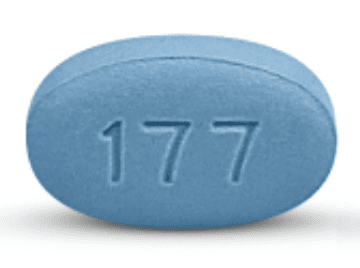Welireg Dosage
Generic name: BELZUTIFAN 40mg
Dosage form: tablet, film coated
Drug class: Miscellaneous antineoplastics
Medically reviewed by Drugs.com. Last updated on May 14, 2025.
Recommended Dosage
The recommended dosage of WELIREG in adult patients is 120 mg administered orally once daily.
The recommended dosage of WELIREG in pediatric patients 12 years and older is based on bodyweight:
- Patients weighing ≥ 40 kg: 120 mg orally once daily
- Patients weighing < 40 kg: 80 mg orally once daily
Continue WELIREG until disease progression or unacceptable toxicity.
WELIREG should be taken at the same time each day and may be taken with or without food.
Advise patients to swallow tablets whole. Do not chew, crush, or split WELIREG prior to swallowing.
If a dose of WELIREG is missed, it can be taken as soon as possible on the same day. Resume the regular daily dose schedule for WELIREG the next day. Do not take extra tablets to make up for the missed dose.
If vomiting occurs any time after taking WELIREG, do not retake the dose. Take the next dose on the next day.
Dosage Modifications for Adverse Reactions
Dosage modifications for WELIREG for adverse reactions are summarized in Table 1.
The recommended dose reductions are:
- First dose reduction: WELIREG 80 mg orally once daily
- Second dose reduction: WELIREG 40 mg orally once daily
- Third dose reduction: Permanently discontinue
| Adverse Reaction | Severity | Dosage Modification |
|---|---|---|
| Anemia |
Hemoglobin <8 g/dL or transfusion indicated |
|
| Life-threatening or urgent intervention indicated |
|
|
| Hypoxia |
Decreased oxygen saturation with exercise (e.g., pulse oximeter <88%) |
|
| Decreased oxygen saturation at rest (e.g., pulse oximeter <88% or PaO2 ≤55 mm Hg) or urgent intervention indicated |
|
|
| Life-threatening or recurrent symptomatic hypoxia |
|
|
| Other Adverse Reactions |
Grade 3 |
|
| Grade 4 |
|
More about Welireg (belzutifan)
- Check interactions
- Compare alternatives
- Pricing & coupons
- Drug images
- Side effects
- During pregnancy
- FDA approval history
- Drug class: miscellaneous antineoplastics
- En español
Patient resources
Professional resources
Related treatment guides
See also:
Further information
Always consult your healthcare provider to ensure the information displayed on this page applies to your personal circumstances.


